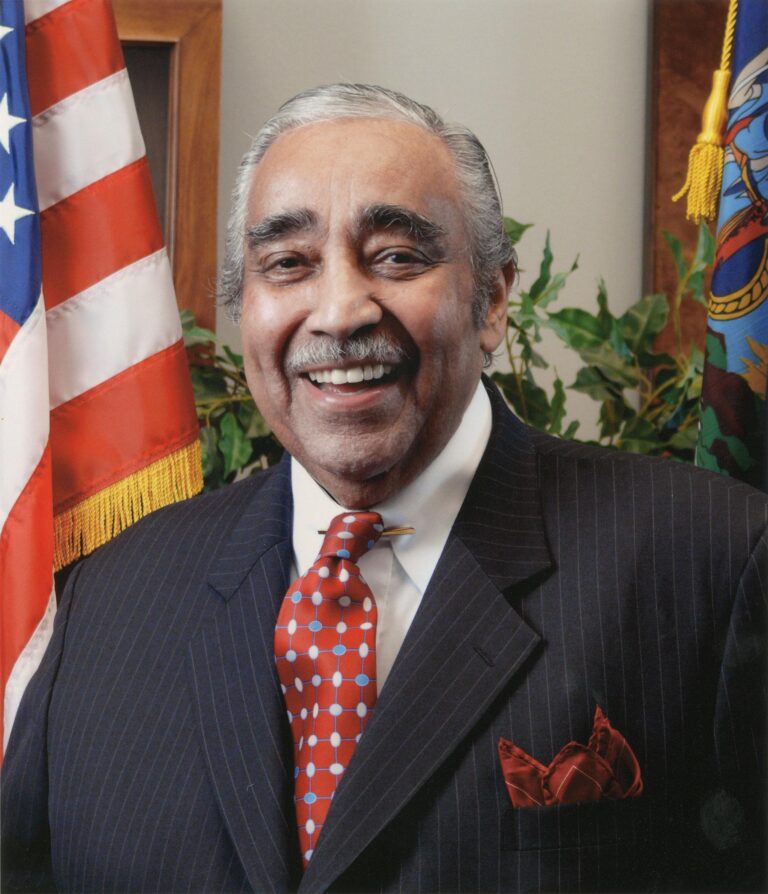Mourners gathered at New York City Hall on Tuesday to pay their final respects to the late U.S. Representative Charles Rangel, whose body lay in state in honor of his decades of public service. The solemn ceremony drew politicians, community leaders, and citizens alike, reflecting on the enduring legacy of one of Harlem’s most influential figures. Rangel, who served in Congress for nearly five decades, was remembered for his dedication to civil rights, military veterans, and economic empowerment. As New York City bid farewell, tributes underscored the deep impact of his career and the void left by his passing.
Mourners Gather to Honor Legacy of Charles Rangel at New York City Hall
Thousands converged at New York City Hall, standing in solemn tribute to honor the profound impact of the late Charles Rangel. Known for his decades of dedicated public service, Rangel’s legacy as a champion of civil rights and economic justice resonated deeply with attendees. The atmosphere was heavy with emotion as mourners, including political leaders, community activists, and constituents, paid their final respects, sharing heartfelt memories and stories of the congressman’s unwavering commitment to the people he served.
Among the notable moments of the ceremony were the readings of Rangel’s key legislative achievements and his personal principles that shaped his approach to governance. The event also highlighted three pillars of his legacy:
- Advocacy for Veterans – Championing reforms to improve healthcare and benefits for military veterans.
- Economic Empowerment – Efforts to uplift underserved communities through economic initiatives and policies.
- Diplomatic Leadership – Serving as a voice for American engagement in global diplomacy and peacekeeping.
| Year | Milestone | Impact |
|---|---|---|
| 1971 | Elected to Congress | Served continuous terms spanning five decades |
| 1989 | Chairman of Ways & Means Committee | Guided landmark tax reforms |
| 2010 | Veterans Affairs Advocacy | Expanded benefits for returning service members |
Inside the Lying in State Ceremony Celebrating a Distinguished Congressional Career
The solemn event held at New York City Hall drew a wide spectrum of attendees, from political allies to community leaders, each coming to honor the enduring legacy of Charles Rangel. A distinguished figure known for his four-decade career in Congress, Rangel’s impact on urban growth, civil rights, and economic policy was reflected in the heartfelt tributes offered by those present.The atmosphere was charged with respect and reflection as mourners slowly filed past the casket, taking a moment to pay their respects to a man who had shaped national discourse for generations.
- Location: Rotunda of New York City Hall
- Duration: 12 hours of public viewing
- Notable Attendees: Former colleagues, civil rights activists, local officials
- Tributes: Speeches, floral arrangements, and a moment of silence
The ceremonial arrangement was thoughtfully composed to reflect Rangel’s personal and professional life. His iconic Congressional flag,a symbolic red rose,and framed photographs chronicling pivotal moments from his career adorned the space around the casket. A companion table displayed key legislative milestones, highlighting his leadership in areas such as the Tax Reform Act and the establishment of the Harlem Empowerment Zone. The event served not only as a farewell but as a vivid reminder of a lifetime devoted to public service and advocacy for underserved communities.
| Career Highlight | Year | Impact |
|---|---|---|
| First Elected to Congress | 1970 | Started 46-year congressional tenure |
| Chairman of Ways and Means Committee | 2007-2010 | Influenced major tax legislation |
| Harlem Empowerment Zone | 1994 | Revitalized community development |
Reflecting on Rangel’s Impact on Civil Rights and New York City Politics
Charles Rangel’s legacy in civil rights and New York City politics is profound and multifaceted. As one of the longest-serving African American members of Congress, his career spanned over five decades, during which he championed initiatives that advanced racial equality and social justice. Rangel was instrumental in the passage of legislation addressing housing discrimination, education opportunities, and economic empowerment for marginalized communities. His work on the Ways and Means Committee allowed him to influence tax policies that benefited middle- and working-class families, reshaping the city’s socio-economic landscape.
Beyond legislation, Rangel’s impact is seen in his mentorship and leadership within New York’s political scene.Close allies and contemporaries remember him for his unwavering commitment to advocacy and his ability to unite diverse groups around shared goals. Key elements of Rangel’s influence include:
- Grassroots engagement: Empowering local communities in Harlem and beyond.
- Cultural preservation: Supporting initiatives that celebrate African American heritage.
- Political mentorship: Cultivating new leaders to continue the fight for equality.
| Decade | Major Achievement | Impact |
|---|---|---|
| 1970s | Fair Housing Act Advocacy | Reduced discriminatory practices in NYC |
| 1980s | Economic Empowerment Programs | Increased support for small businesses |
| 1990s | Education Reform Initiatives | Improved access for underprivileged students |
| 2000s | Mentorship of New Leaders | Strengthened political portrayal |
How Communities Can Continue Charles Rangel’s Commitment to Public Service
To honor Charles Rangel’s lifelong dedication to public service, communities must actively engage in initiatives that prioritize social equity and economic empowerment. Embracing inclusive policy-making and fostering grassroots leadership can sustain his vision of equitable representation. Local organizations and educational institutions can collaborate to create mentorship programs that inspire future leaders to advocate for underrepresented communities, ensuring the values Rangel championed remain at the forefront of civic engagement.
Practical steps can be categorized to guide action effectively:
- Support community-driven economic development projects focused on job creation
- Promote civic education to increase voter participation and awareness
- Encourage partnerships between nonprofits and government agencies for resource sharing
- Highlight legislation that protects vulnerable populations and addresses systemic inequalities
| Focus Area | Community Action | Expected Impact |
|---|---|---|
| Education | Establish scholarships and training programs | Increased access to higher education |
| Healthcare | Expand outreach for preventive care | Better health outcomes and awareness |
| Housing | Advocate for affordable housing policies | Reduced homelessness and displacement |
To Conclude
As mourners continue to pay their respects to the late Representative Charles Rangel, his legacy as a dedicated public servant and influential figure in American politics remains deeply etched in the hearts of New Yorkers and colleagues nationwide. With his body lying in state at New York City Hall, the city honors a lifetime of service marked by commitment to civil rights, economic justice, and the communities he represented with unwavering resolve. The outpouring of grief and remembrance underscores the profound impact Rangel had throughout his distinguished career, as friends, family, and constituents gather to bid farewell to a true icon of American public life.




